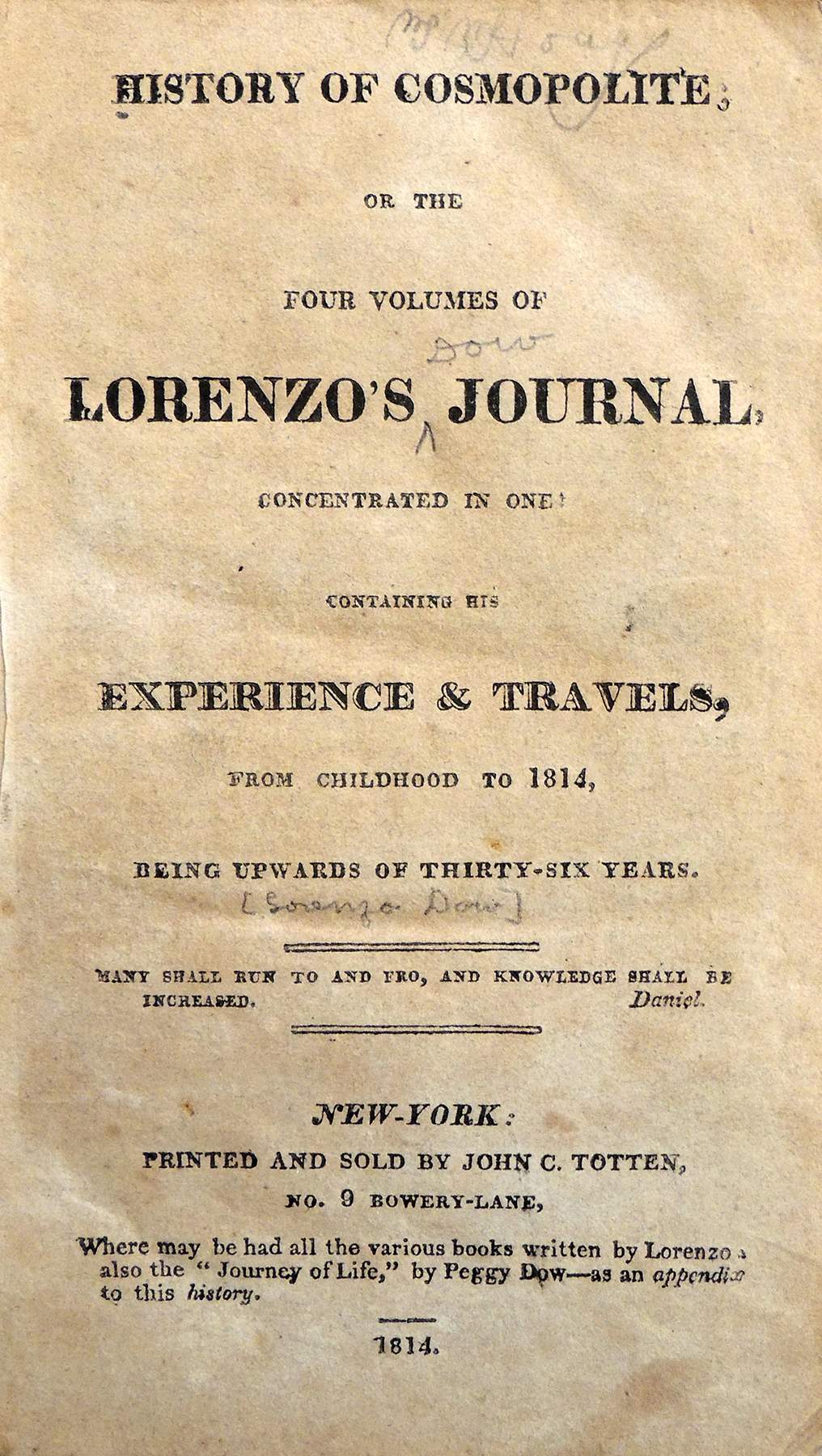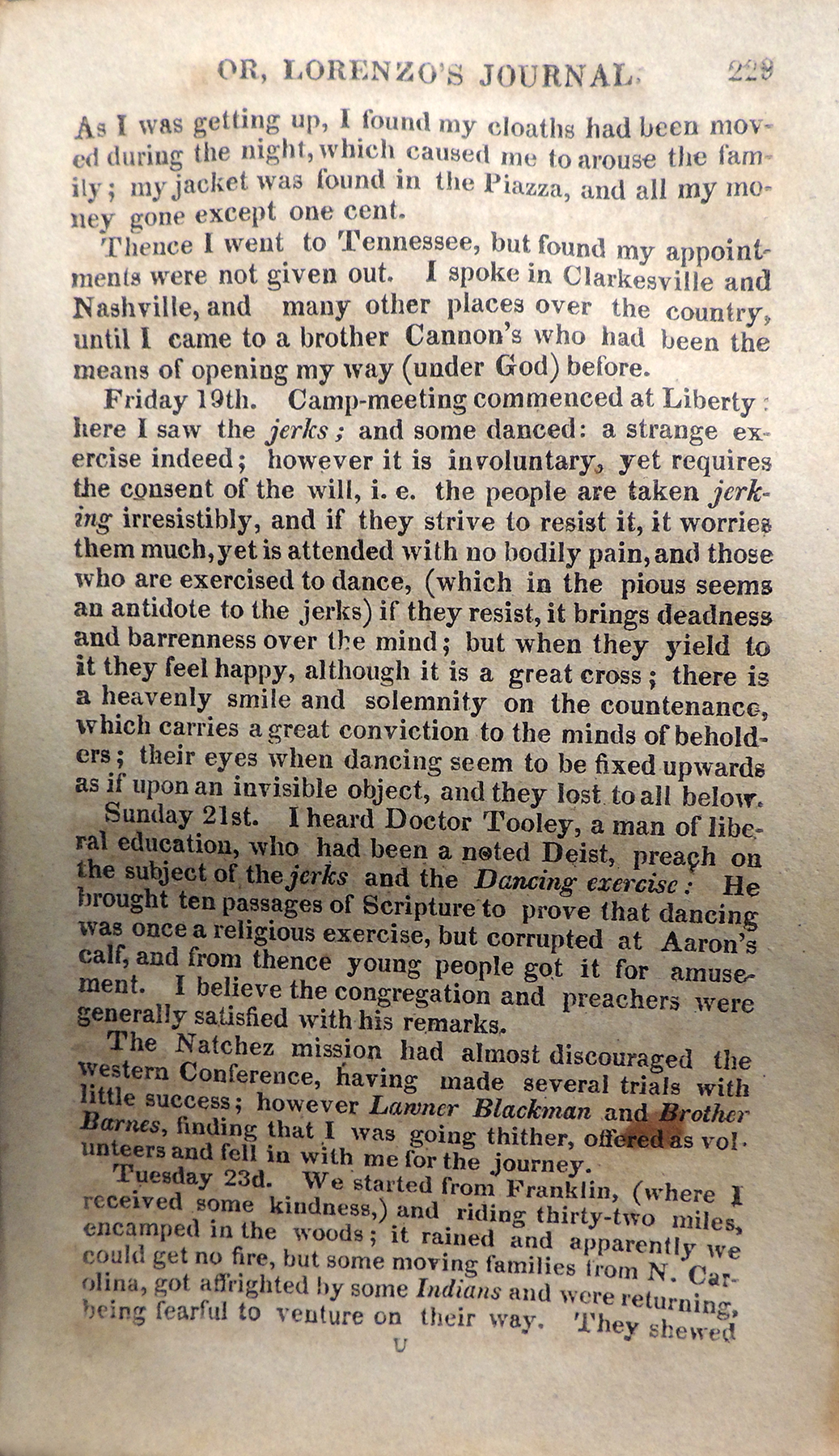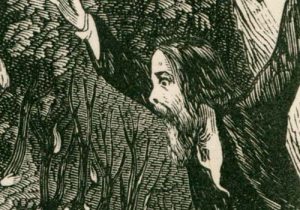Following his preaching tour of the Carolinas and east Tennessee during the fall and winter of 1803–1804, Lorenzo Dow returned home to New England and married Peggy Holcomb. Then, in September, he set out for the Natchez District of the Mississippi Territory. In this excerpt from History of Cosmopolite, the indefatigable Methodist itinerant recalled seeing the jerks in Pennsylvania, Ohio, and Kentucky and provided a more detailed account of the bodily exercises that erupted during a camp meeting at Liberty Hill (now Brentwood), Tennessee. Dow traveled with fellow Methodist circuit rider Learner Blackman, who also described the jerks in his journal. Contextual material appears in square brackets.
Monday Oct. 1st [1804]. I found Mr. Hodge, a Presbyterian minister, had failed in giving out my appointments; however I fell in with the Western conference, which was now sitting in Kentucky, and God was with them and the people. I saw the jerks in Pennsylvania, Ohio, and this state on this journey. Several of the presiding elders called me into a private room; and after some interview, we parted in friendship. Next day I spoke under the trees, nearly the whole conference being present; I thought I could disern every countenance present, and tell the methodist from the A-double-L-part people, and never before observed that present impression would cause the countenance to be such an index of the mind, of pleasure and pain, expecially in an auditory. From thence I went to Lexington, held a few meeings, and saw one whom I had known in Dublin, but he was not as happy now as once. I here experienced some kindness, and also spoke at Paris by the way: an A-double-L-part man being convinced that A-double-L-part meant all, caused great uneasiness among the Presbyterians. First, several preachers formed themselves into an association, by the name of the Springfield Association, and then made a will and voluntarily died, and instead of being a distinct party, sunk into union with all Christians.
Sunday 7th. I spoke in Herodsburgh and Springfield. As I was getting up, I found my clothes had been moved during the night, which caused me to arouse the family; my jacket was found in the piazza, and all my money gone but one cent.
Thence I went to Tennessee, but found my appointments were not given out. I spoke in Clarkesville and Nashville, and many other places over the country, until I came to a brother Canon’s who had been the means of opening my way (under God) before.
Friday 19th. Camp-meeting commenced at Liberty: here I saw the jerks; and some danced: a strange exercise indeed; however it is involuntary, yet requires the consent of the will: i.e, the people are taken jerking irresistibly, and if they strive to resist it, it worries them much, yet is attended with no bodily pain, and those who are exercised to dance, (which in the pious seems an antidote to the jerks) if they resist, it brings deadness and barrenness over the mind; but when they yield to it they feel happy, although it is a great cross; there is a heavenly smile and solemnity on the countenance, which carries a great conviction to the minds of beholders; their eyes when dancing seem to be fixed upwards as if upon an invisible object, and they lost to all below.
Sunday 21st. I heard Doctor Tooley, a man of liberal education, who has been a noted deist, preach on the subject of the jerks and the dancing exercise: He brought ten passages of Scripture to prove that dancing was once a religious exercise, but corrupted at Aaron’s calf, and from thence young people got it for amusement. I believe the congregation and preachers were generally satisfied with his remarks.
Source
Lorenzo Dow, History of Cosmopolite; Or the Four Volumes of Lorenzo’s Journal, Concentrated in One… (New York: John C. Totten, 1814), 228–229.
Images courtesy of the American Antiquarian Society, Worcester, Massachusetts.



